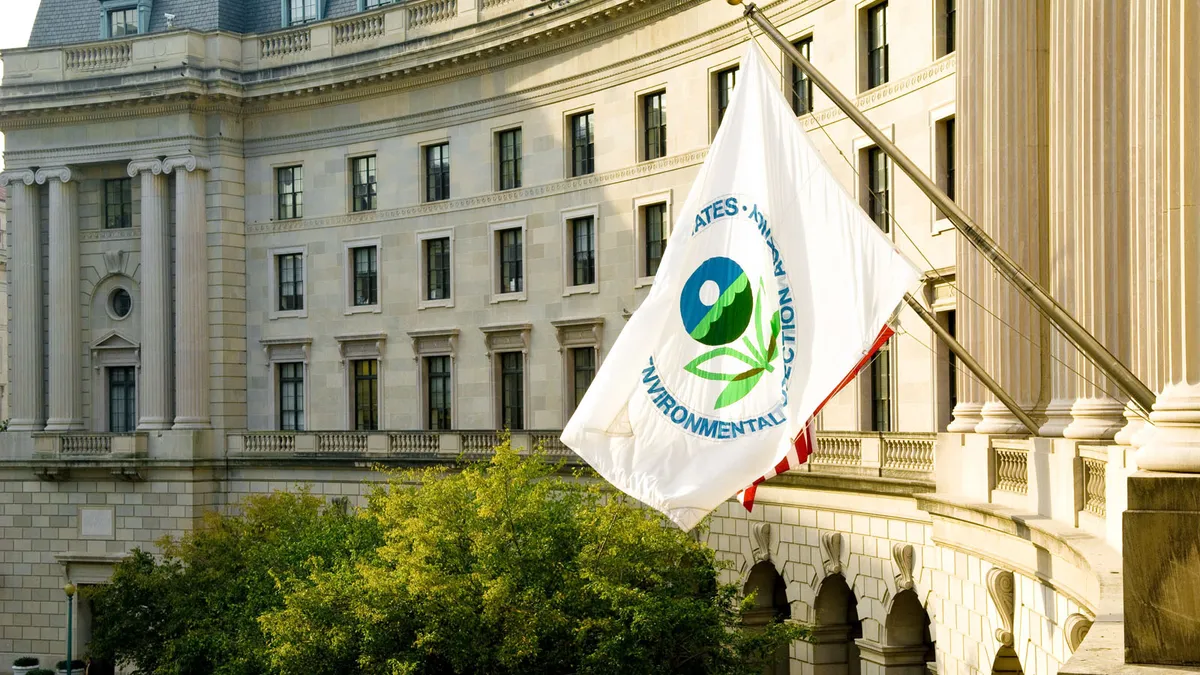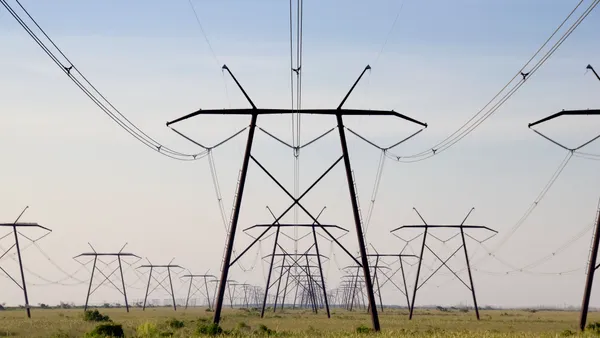Dive Brief:
- 14 state attorneys general, led by New York's Letitia James, wrote Environmental Protection Agency Administrator Andrew Wheeler on Wednesday demanding the agency rescind its recent policy providing more compliance flexibility to power plants and other regulated entities during the coronavirus pandemic.
- The attorneys general say the policy significantly curtails "enforcement of our nation’s bedrock environmental and public health laws," but EPA on April 2 pushed back on criticism that it is shirking its responsibilities. And industry says it expects to need the flexibility only in extreme cases.
- Meanwhile, the Natural Resources Defense Council and 14 other groups sued the agency in federal district court on Thursday, alleging the agency's failure to respond to their administrative petition requesting changes to the policy is "unreasonable and unlawful."
Dive Insight:
These are extraordinary times, and the attorneys general recognize that. But there are limits to what EPA should do in response, they note.
"Although it is appropriate for EPA to consider whether safeguards that businesses are taking against the coronavirus impact their ability to comply with those laws, the agency cannot — in the midst of a public health crisis — lose sight of its mission to protect public health and the environment," they write.
"[W]e are particularly concerned about the agency’s lack of consideration of the policy’s potential impact on public health, especially the health of low income and minority communities who are greater risk of suffering adverse outcomes from COVID-19," the letter continues.
The attorneys general vowed to continue enforcing state environmental laws "in a reasonable manner" and said they would hold regulated entities accountable under federal laws if EPA will not.
In addition to New York, which is facing the worst of the pandemic in the U.S., attorneys general from Illinois, Iowa, Maryland, Massachusetts, Michigan, Minnesota, Oregon, Pennsylvania, Rhode Island, Vermont, Virginia, Washington and Wisconsin also signed the letter.
EPA first announced the revised enforcement policy March 26, drawing immediate fire from environmental groups and others. Former EPA Administrator Gina McCarthy, who now heads the Natural Resources Defense Council, called it "an open license to pollute" and "an abdication of the EPA's responsibility."
EPA enforcement chief Susan Bodine on April 2 responded to critical letters from House and Senate Democrats, calling their allegations "irresponsible."
"The idea that EPA is giving industry a license to pollute mischaracterizes the agency's response ... EPA expects regulated facilities to comply with regulatory requirements, where reasonably practicable, and to return to compliance as quickly as possible, once the COVID-19 threat subsides," she wrote.
Power plant operators say they only expect to need compliance flexibility in extreme scenarios. In addition, under the new policy, operators would have to prove that any environmental violations were directly due to disruptions stemming from the novel coronavirus.
But NGOs are not satisfied with such assurances and have gone a step further than the attorneys general, filing a lawsuit in the U.S. District Court for the Southern District of New York.
In their April 1 petition, the groups asked EPA to publish a rule within seven days and make it effective immediately "requiring any entity that stops monitoring and reporting for environmental pollution in response to the COVID-19 pandemic to provide written notice and justification to EPA, which EPA would then make available to the public," the lawsuit states.
The groups says EPA's current policy allows companies to document any non-compliance "internally" and inform the agency about it later, if asked.
"The COVID-19 pandemic has caused widespread disruption and harm. But EPA’s unprecedented non-enforcement policy risks suppressing critical data and information and creates a clear opportunity for abuse," the complaint continues.
The groups are asking the court to order EPA to respond to their April 1 petition as soon as possible and no later than five days after a judgment is entered.













